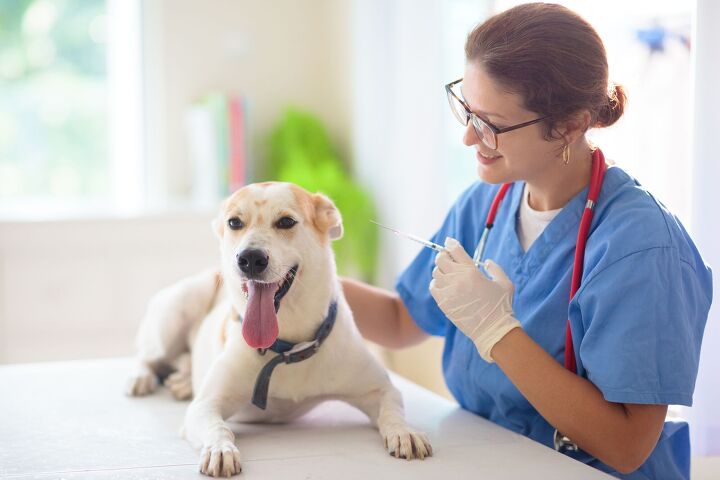Study Shows Half of U.S. Dog Owners Are Concerned About Pet Vaccines

A significant percentage of U.S. dog owners is skeptical of vaccinating their dogs - even to help prevent rabies. These findings come from a recently published study that investigated a phenomenon called canine vaccine hesitancy.
The study, published in the medical journal Vaccine, surveyed 2,200 American dog owners regarding their opinion on routine vaccines given to pet dogs, including the rabies vaccine.
Of those participating in the study, 37% consider that vaccines administered to dogs are unsafe, 22% believe jabs are ineffective, and 30% find vaccines unnecessary. Additionally, 53% of owners hold at least one of these three propositions. Simply put, the majority of dog owners are concerned about vaccines that are legally required and recommended for their dogs.
These results were surprising for Gabriella and Matt Motta, who conducted this study alongside a fellow researcher Dominik Stecula. Although the sample size isn’t very big, only 2,200 dog owners, the study’s authors state that the company they worked with has a track record of producing samples that closely match U.S. census demographics, making the sample indicative of the general population.
Mett Motta, a political scientist and researcher at Boston University School of Public Health, told USA Today, “We were pretty surprised because we knew that this phenomenon would exist, anecdotally we had a good reason to believe that it was, but we were pretty stunned. The sheer volume of people who hold these opinions was quite striking…that, to me, is pretty alarming.”
This study also revealed the continuation of disproven vaccine myths that usually apply to humans. Although there is no scientific evidence that vaccines increase the risk of cognitive issues in dogs, nearly 40% of owners said they feared vaccines could cause their dogs to develop autism.
Gabriella Motta, a board-certified veterinarian at Glenolden Animal Hospital, said she understands that the concern comes from the owners’ love for their dogs, but also a lack of experience with diseases routine vaccines protect against
"I think when owners are questioning the vaccine, they are coming from a place where they truly care about their dogs and they don’t want their dogs to be a guinea pig or, you know, get something that they don’t need, that could potentially cause a side effect. People kind of forget, you know, how bad [rabies] actually can be, so there’s a lot of the question of, well, why does my pet need to be vaccinated?” said Dr. Motta.
According to the CDC, dogs are the main carriers and transmitters of rabies to humans, causing around 59,000 deaths worldwide each year. However, thanks to laws mandating that owners vaccinate their dogs against rabies, there are only 60 to 70 rabid dogs reported each year in the U.S.
Since rabies is easily transmitted from wildlife to domestic animals, and then to humans from dogs through a bite, a decrease in vaccinations could pose serious risks to public health.
“I run in a park in Boston every morning and I come across dogs that are off leash all the time,” said Matt Motta. “And yes, some of them do try to nip at my ankles from time to time, and in a world where every dog is vaccinated, I don’t have to worry about that. But if they are not, that’s something I have to think about.”

Nevena is a freelance writer and a proud mom of Teo, a 17-year-old poodle, and Bob, a rescued grey tabby cat. Since childhood, she had a habit of picking up strays and bringing them home (luckily, her parents didn't know how to say NO). When she's not writing for her fellow pet parents, Nevena can be found watching Teo sleep. To her defense, that's not as creepy as it sounds!
More by Nevena Nacic























